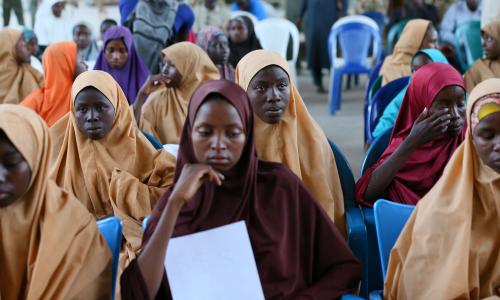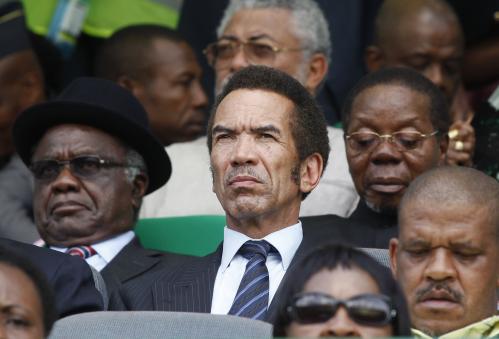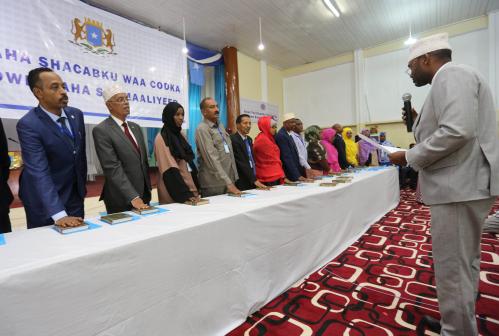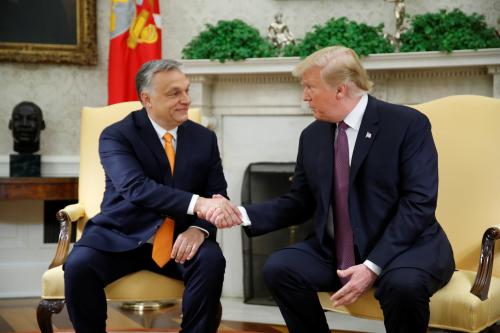Rwandan Senate approves potential third term bid for President Paul Kagame
This week, the Rwandan Senate unanimously endorsed constitutional changes that will allow President Paul Kagame to run for a third presidential term. Earlier this month, the chamber of deputies—the lower chamber in Rwanda’s parliament—had already agreed to the constitutional change. The decision confirming the change will now be subject to approval through a referendum, which is yet to be scheduled. Indeed, the referendum is expected to confirm the constitutional change, given Kagame’s popularity; as last May, the parliament received a petition—signed by two million people—asking for this change which allows Kagame to run a third time.
While the senate’s decision was not met with political unrest in Rwanda, the news was met with “great concern” from the international community. United States State Department spokesman Mark Toner issued a statement declaring, “We expect President Kagame to follow through on the commitments he has made previously to foster a new generation of leaders in Rwanda and to step down at the end of his current term in 2017.” Toner added that if Kagame was to stay beyond his current term, it could negatively impact U.S.-Rwanda relations.
Kagame—leader of the Rwandan Patriotic Front, which defeated the Hutu-led forces and ended the 1994 genocide that killed 800,000— has been in power since 2000. Kagame—despite facing human rights violations accusations— has received widespread praise for reviving economic and social development in Rwanda. Over the past decade, Rwanda saw growth rates averaging 7.8 percent. The country has also achieved notable progress under Kagame in the realm of gender equality as 64 percent of the country’s politicians are women, as opposed to 19 percent in the U.S.
Notably, Kagame has not announced his third bid for the presidency, but he remains open to persuasion.
South Africa raises interest rates due to impending U.S. Federal Reserve rate hike and increasing inflationary pressures
This week, the South African Central Bank raised interest rates amid an increased fear of a further fall in the rand, largely due to the looming increase in the U.S. Federal Reserve rate. This second interest rate hike of the year included a raise of 25 basis points to 6.25 percent, a move that had so far been delayed given concerns of the weak economic situation in the country.
The slowdown in China, slump in commodity prices, high unemployment rate, weakening currency, and continued power shortages have all led to a dismal growth trajectory. There were some concerns in the market that high interest rates could further stall economic growth by reducing consumer demand. Reserve Bank Governor Lesetja Kganyago dismissed the concerns stating that the economy faced deeper structural issues instead. He continued to further justify the increase stating the impending inflationary pressures on food prices—especially maize—led by the increased intensity of drought. In addition, experts argued that the tough decision by the monetary policy committee highlighted the credibility of the central bank and the challenges it faces, as the economy is already expected to grow at a mere 1.4 percent in 2015.
Military graft scandal emerges as threat from Boko Haram grows in Nigeria
Former security advisor under the Goodluck Jonathan administration, Sambo Dasuki, was arrested this week as a part of President Muhammadu Buhari’s ongoing efforts to root out graft in the Nigerian government. Dasuki, who was already under house arrest for allegedly possessing illegal firearms, was further accused of stealing $2 billion from the national military budget. The charges against him include allegations that he created fictitious “phantom contracts” to purchase 12 helicopters, four fighter jets, and ammunition, which were meant to advance the fight against Boko Haram, but were never delivered. Meanwhile, under Jonathan’s administration, Nigerian soldiers argued that they were ill-equipped to fight Boko Haram despite the bloated military budget.
Boko Haram killed 6,644 people last year alone, making it the deadliest terrorist group of 2014—even surpassing the Islamic State (which killed 6,073 people)—according to a report released by the Global Terrorism Index on Wednesday. Although Boko Haram continues its attacks against civilians and the military with alarming frequency, killing dozens of people this week in bombings in Yola and Kano, some Nigerian officials are optimistic that the terrorist group may be losing ground. As the Nigerian army (supported by its neighbors Cameroon, Chad, and Niger) increasingly ventures into Boko Haram strongholds in the northern regions of the country, capturing the group’s bases and freeing captives, it is breaking up the group’s control over large swathes of these regions and is forcing its members to scatter.






Commentary
Africa in the news: Rwanda’s Kagame allowed to seek third term; South Africa raises interest rates, and former Nigeria security adviser arrested
November 20, 2015